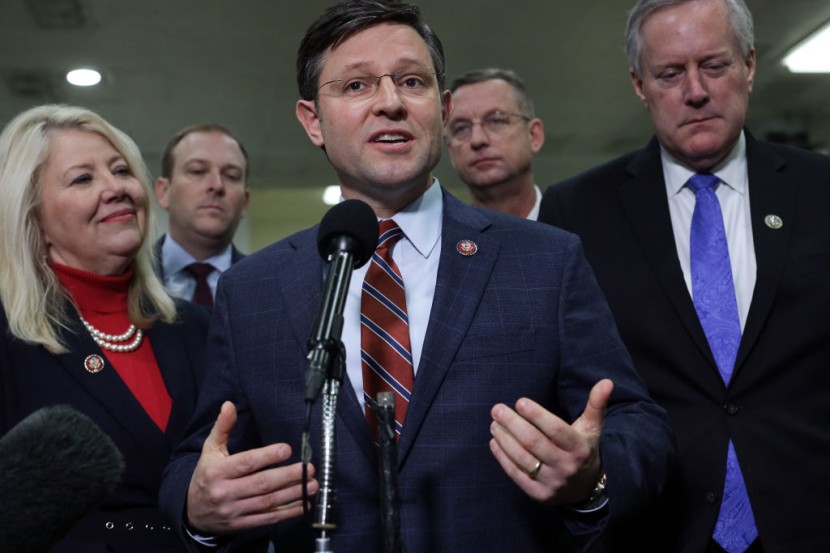House Speaker Mike Johnson (R-La.) is making strategic plays that could redefine the United States' foreign aid distribution, particularly concerning the crisis in Ukraine and the challenges at the US-Mexico border.
On a recent Sunday, Johnson made headlines with his perspective on Fox News, suggesting a novel coupling of Ukraine aid with increased funding for the US-Mexico border, insisting on prioritizing American border needs, as per to FOX News.
Speaker Johnson's Proposal Sparks Controversy

This proposal has stirred a maelstrom of controversy, particularly among Democratic leaders who see this move as a subversive tactic to advance a hardline immigration agenda. Accusations from Democratic congressional caucuses have been swift, framing Republicans as using foreign conflicts as leverage to circumvent standard legislative processes.
Amid this political skirmish, Speaker Johnson and President Joe Biden find themselves in a delicate dance of diplomacy and opposition. With Biden pushing for a substantial defense spending bill that encompasses aid to Israel, Ukraine, and the US border, the two leaders, who stand on opposite ends of the political spectrum, must find a path to collaboration amidst looming threats of a government shutdown.
Experts, like University of Kansas political science professor John C. Pierce, emphasize the importance of a functional relationship between the President and the Speaker, particularly in turbulent global times. Cooperation, Pierce argues, is pivotal, even if complete consensus remains to be elusive.
The political landscape Johnson navigates is complex. His predecessor, Kevin McCarthy, faced challenges from within the Republican ranks, leaving Johnson with the task of maintaining party unity while negotiating with a President from across the aisle.
Veteran lawmaker Peter King suggests Johnson might enjoy a grace period to enact policies. Still, the intricacies of compromise with President Biden while aligning with his Republican colleagues will test his political acumen, according to Bloomberg.
Johnson's Path in a Volatile Political Landscape
Speaker Johnson, a staunch supporter of former President Donald Trump and a skeptic of the legitimacy of the 2020 election results, has an intricate path to tread. His support of the GOP-led impeachment inquiry over allegations against Biden and his family's business dealings adds yet another layer to the already complex relationship between the legislative and executive branches.
Despite the fraught backdrop, areas of agreement do exist. Defense spending has emerged as a potential common ground. President Biden's inclusion of Johnson in top-level briefings on international security issues indicates a willingness to bridge the divide, at least on specific topics.
Johnson's stance has evolved; despite initial resistance to funding Ukraine's defense against Russia, he has signaled an openness to consider it. However, including aid for other regions, such as Taiwan, in the spending package has been a sticking point.
Johnson's maneuvers in the House resulted in a vote favoring a $14.5 billion aid package for Israel, notably excluding Ukraine. It passed the House but faces a dead end in the Senate and a promised veto from the White House if it lacks comprehensive funding.
As the political gears turn, figures like King see the potential for productive, if cautious, collaboration. The stakes are high as Speaker Johnson's decisions could shape not only US foreign policy but also the fundamental operational dynamics between the current administration and the legislative branch. His next moves will be closely watched by allies and adversaries as a litmus test for his leadership and the future of bipartisan cooperation in a divided government, Newsday reported.








